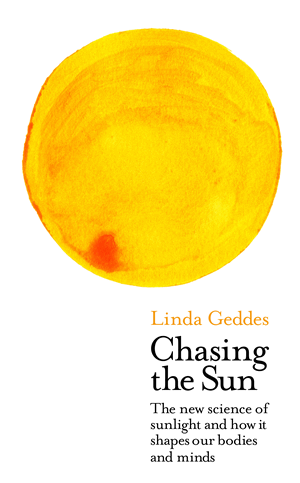I recently heard about a campaign called “the birth I want”, by an inspiring woman called Vicky Garner who believes there should be greater continuity of care during pregnancy and childbirth so that women are better supported in achieving the type of birth they want. While I wholeheartedly agree, I think there’s also something missing from this argument that could improve women’s birth experience – even in the absence of a personal birth attendant: a greater honesty about just what birth entails.
I’m certainly not against natural childbirth. My first daughter was delivered naturally, although I did request an epidural after 31 hours of contractions had failed to make my cervix dilate more than the width of a milk-bottle top (which was dispiriting, to say the least). I think every woman should have the right to choose the type of birth she has, but I also think that it should be an informed choice guided by facts and not the opinions of those around her.
What bothers me is the suggestion by some in the natural childbirth movement that all medical intervention is to be frowned upon, and that labour can be pain-free if you just relax, banish fear, and think positive thoughts. Suggesting that you can choose whether or not to experience pain (unless it’s through the use of drugs), or that you can control whether or not you’ll need a medical procedure like a c-section is in my opinion, simply setting women up to fail.
Before my daughter was born, I attended classes run by the National Childbirth Trust (NCT), which aims to empower women about their birth choices by giving them access to evidence not opinion. The trouble is that my NCT teacher at least, seemed to hold pretty strong opinions about the superiority of natural childbirth, and frightened us with tales of “spirals of medical intervention”. To give an example, we were told that if we requested an epidural, we’d likely end up flat on our backs with heaps of straps and cables hanging off us, and would be more likely to end up having our babies ripped out of us with a pair of forceps, or on the operating table undergoing an emergency caesarean section. Combined with the hypnobirthing course I had attended, I came away with the message that doctors couldn’t be trusted and that since pain is in the eye of the beholder, I could choose not to experience it. My birth plan strongly stated: no epidural!
Unfortunately, for the majority of women, childbirth hurts — a lot. I for one, was unprepared for the level of pain I was going to come up against, and (despite the hypnobirthing training) I panicked, which undoubtably made it worse. A recent study found that while 36% of women anticipated suffering extreme pain during labour, 65% reported experiencing it. Of course there are a lucky few who sail through labour with only mild discomfort, but they are in the minority. When I eventually requested an epidural, I felt guilty, but when my baby then took another eleven hours to make her appearance (42 hours in total), ultimately vindicated.
This isn’t the case for every woman who sets out wanting a natural birth, but ends up needing medical assistance. I recently came across this small study which found that women who went into childbirth with a relaxed and flexible attitude towards what they could expect were more likely to be satisfied with the experience than those who went in with fixed expectations of a certain type of birth, or who focused on specific results like having no medical interventions.
I don’t want to frighten women who are expecting their first child, but I do think there’s a case for greater honesty about what to expect during birth so women are more open-minded to the possibility of drugs, or to the idea that they may need medical assistance at some point. I say this because there’s also evidence that those women who go into birth with their eyes open to the fact that it’s likely to be tough are the ones who are more likely to achieve their goal of a natural birth.
One study of women who planned to have a natural birth found that those who anticipated more pain, who already had children and knew what to expect, and who had higher pain thresholds were more likely to succeed without drugs than first-time mums who had no idea of what to expect. What saddens me about this study is that of those women who had an epidural, 88% said that they thought it made their childbirth unsatisfying, even though it relieved their pain and they gave birth to a healthy baby. Why? Among the reasons given were a sense of failure, and a misplaced concern that an epidural might have harmed their baby somehow. I’ve heard similar anecdotes, including one friend who said she’d feel unable to look her NCT friends in the face if she asked for an epidural.
And epidurals really aren’t as bad as some would have us believe. During the research for my book, Bumpology, I fell pregnant with my second child, and I was forced to revisit much of what I had been told the first time around. This is when I realised that much of what I’d been told wasn’t necessarily true. Take the risk of needing an instrumental delivery (one involving forceps or a ventouse) following an epidural. There is an increased risk, but if you look at the numbers you realise that it’s a small one, and one which has to be weighed against the great relief an epidural can bring. In fact, twenty women would have to undergo an epidural for just one of them to end up with an extra instrumental delivery – and not necessarily because of the epidural drugs, but perhaps because doctors are more ready and willing to get the forceps out if a woman already has an epidural in place. There is no increased risk of a c-section, despite popular belief.
Another midwife friend of mine has just left the labour ward to become a community midwife specialising in home births. I asked her what the majority of pregnant women she sees expect from birth, and she confirmed that many of them come to her with very fixed ideas — be it of a water birth, one completely free from drugs, or one involving alternative ways of managing pain, like hypnotherapy. She tells them: “how can you possibly plan how you’ll react to birth, if you’ve never been through it before.? Let’s just take it as it comes.”
And this is a key reason why we need more midwives to accompany women throughout that bumpy journey into motherhood. For just like a good friend will support your decisions, but let you know if you’re being unreasonable or kidding yourself about sensitive issues (even if you don’t want to hear their advice), a good midwife who has the time to get to know you and your wishes, but who can also counsel you on the true nature of what you’re up against, has got to be a better advocate than a stranger who only meets you once you’re in the throes of labour and has to leave at the end of their 12 hour shift.



Well said Linda! I couldn’t agree more. As well as hearing a more realistic picture of birth I’d also have liked to hear the truth about breastfeeding. I’m all for hearing the benefits, but the NCT and the like should also treat women as adults who can handle with the truth and still decide to do it. The truth being that it can be really hard during the first few days when you’ll probably be shattered, may be shell-shocked from birth and are almost certainly overwhelmed by the task at hand. Not to mention that the responsibility of keeping your baby fed and alive day and night for months on end can be overwhelming and exhausting because no one can do it for you! If I’d been told all that I’m sure I would still have breastfed for the same amount of time but would have at least felt like it was normal experience. Looking back at my breastfeeding lessons while I was pregnant, it was laughable.
For risk of side effects to the baby, they won’t allow you to get cratein medicines after you’ve reached a cratein point. My labor plans were to have my contractions and when I reached that point where I just couldn’t handle it anymore, then I’d get the epidural. I wanted that to get that right before the cut off point. Well, each pregnancy is different, but the contractions were the worst part of labor. I went 12 hours( at home) with contractions. When I was admitted to the hospital, I still wanted to wait on the epidural, but I had to have stadol to relax me. But that only worked about 15 minutes for me( my friend got it and went right to sleep lucky girl). After that, I said screw it and got the epidural. And let me say, I was scared about getting it, but it was well worth it. Mine actually worked too good and I couldn’t feel myself pushing. The women that do it without any drugs truly have my respect. After all the pain from the contractions, I don’t know if I could have pushed that 7lb baby out with no meds.
I don’t know if you’ve had children bofere but compared to natural childbirth I can tell you it’s worth any kind of side effects. Most women in western countries get epidurals and their baby comes out completely normal with no real risks. Since an epidural is only a local and does not effect the whole body (only the part of the spine where it’s injected) it never even gets to the baby. The only thing with epidurals is that labor may be a little longer but only by a few hours at most. And compared to the horrible pain of natural, I would gladly go through a few more hours just to be more comfortable.(I’m currently searching for a hospital that gives epidurals. I currently live in China and most of the doctors here are sooo backward that they won’t give them even if you ask!!!!)
Very interesting post. I have read it somewhere, there is a center called “A Woman’s Haven”, who helps help in making an informed decision during the unplanned pregnancy. It’s really very nice.